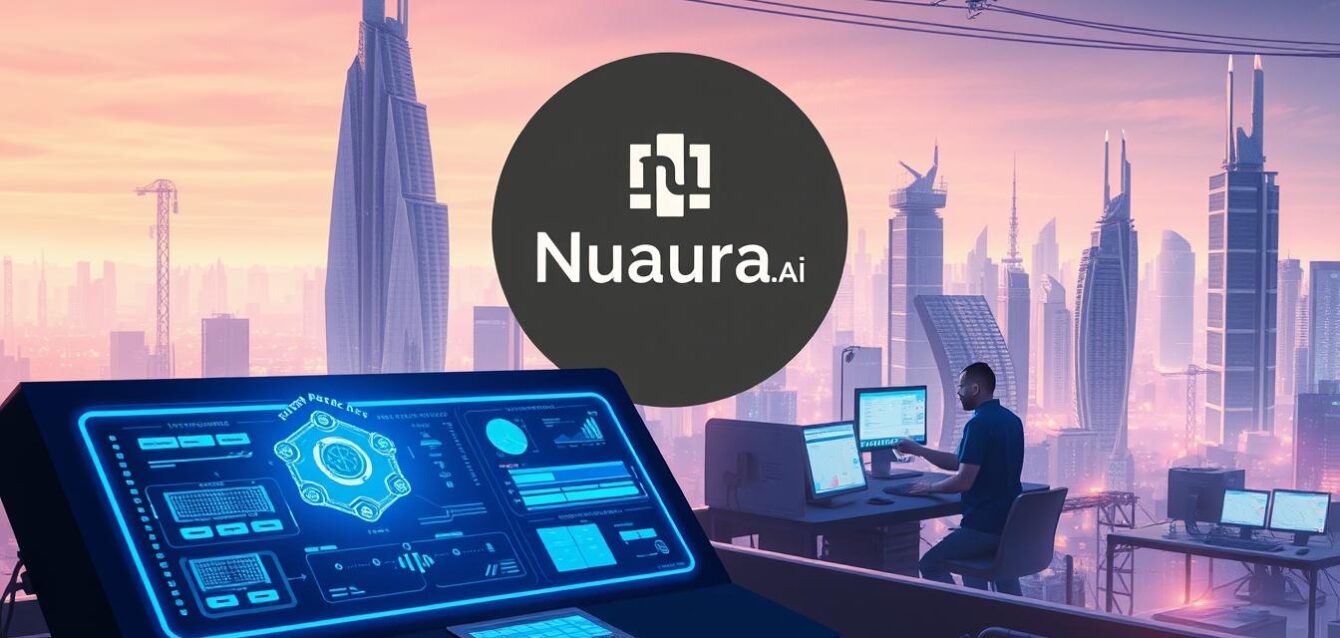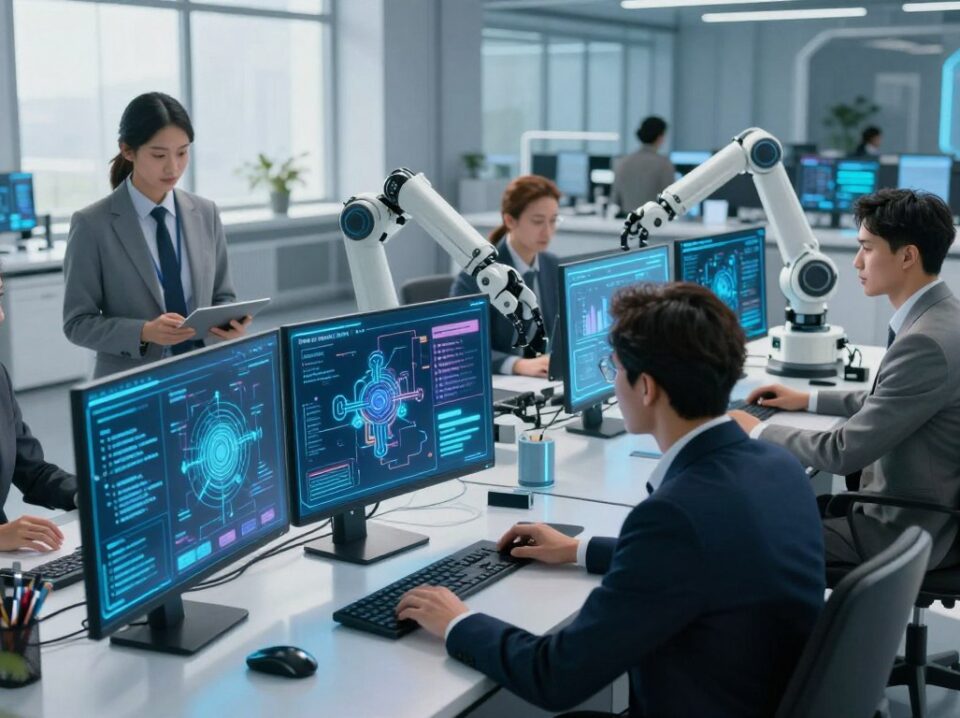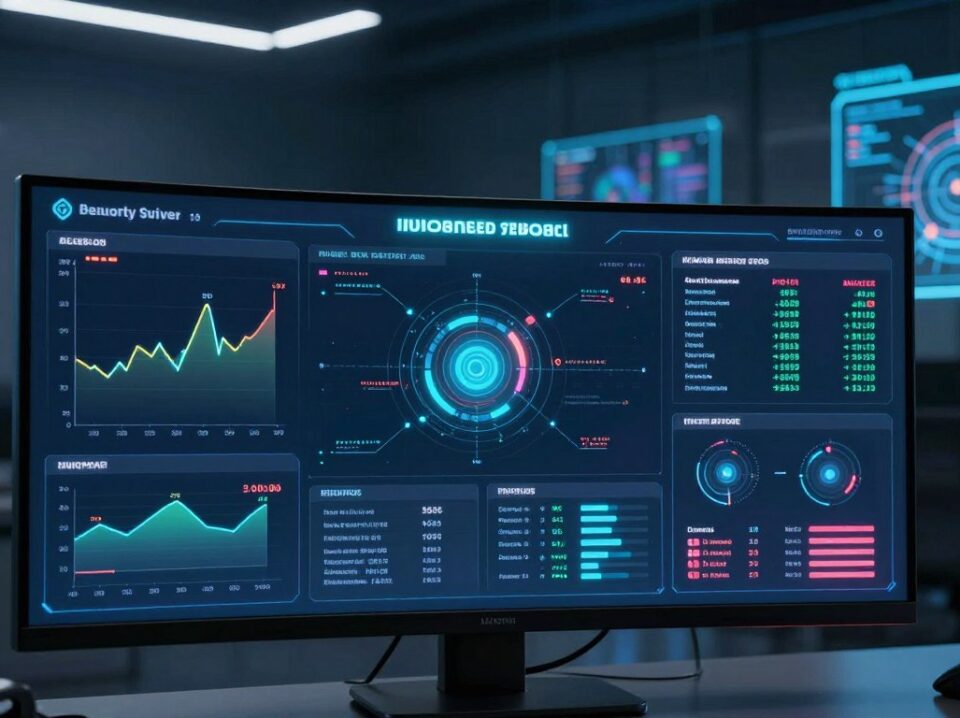Did you know that 79% of enterprise executives believe AI will revolutionize their business operations by 2025? The DevOps landscape is undergoing a radical transformation, with AI for DevOps and SRE teams becoming the cornerstone of modern technological innovation.
Intelligent automation is rapidly changing how technology teams approach complex operational challenges. AIOps is no longer a futuristic concept but a critical strategy for organizations seeking to optimize their software development and deployment processes.
Teams are discovering that AI-driven tools can dramatically reduce manual interventions, predict potential system failures, and create more resilient infrastructure. The integration of artificial intelligence into DevOps practices enables unprecedented levels of efficiency and reliability.
Key Takeaways
- AI transforms traditional DevOps workflows through intelligent automation
- Predictive analytics enhance system reliability and performance
- AIOps reduces manual intervention and operational complexity
- Real-time monitoring becomes more precise with AI technologies
- Organizations can achieve faster deployment and improved security
Understanding AI’s Role in DevOps and SRE
Artificial intelligence has transformed the landscape of software development and operations, becoming a critical component for modern technology teams. Machine learning for operations (MLOps) represents a powerful approach that bridges the gap between advanced analytics and practical system management.
The integration of AI into DevOps and Site Reliability Engineering (SRE) has revolutionized how organizations approach complex technological challenges. By leveraging machine learning algorithms, teams can now predict, automate, and optimize their operational processes with unprecedented precision.
Definition of AI in Operations
AI in operations refers to the strategic application of intelligent algorithms and machine learning techniques to streamline technical workflows. MLOps enables teams to:
- Automate repetitive tasks
- Predict potential system failures
- Optimize resource allocation
- Enhance decision-making processes
Importance of AI in Modern Development
Modern development environments demand intelligent solutions that can handle increasing complexity. Machine learning for operations provides critical capabilities that traditional approaches cannot match, enabling real-time insights and proactive problem-solving.
Key Benefits for Teams
Organizations implementing MLOps strategies experience significant improvements in efficiency and reliability. The benefits include reduced downtime, faster incident resolution, and more strategic resource utilization.
“AI transforms DevOps from reactive management to predictive optimization.” – Tech Innovation Quarterly
AI Tools Revolutionizing DevOps Practices
The landscape of DevOps is rapidly transforming with cutting-edge AI technologies that streamline operations and enhance team productivity. AI-driven monitoring and AI-powered incident management have become game-changers for modern development teams seeking to optimize their workflows.
Popular AI Tools Reshaping DevOps
Several groundbreaking AI tools are redefining how development and operations teams work:
- GitHub Copilot: An AI-powered code completion tool that suggests real-time code snippets
- Dynatrace Davis AI: Advanced observability engine for complex system monitoring
- DataDog AI Ops: Intelligent performance and incident management platform
Features Driving Operational Efficiency
Modern AI tools deliver remarkable capabilities that transform traditional DevOps practices:
- Automated Code Generation: Reducing manual coding efforts
- Predictive Anomaly Detection: Identifying potential system issues before they escalate
- Intelligent Resource Allocation: Optimizing infrastructure management
Real-World Implementation Success
Organizations implementing AI-driven monitoring have reported significant improvements in development speed and system reliability. By leveraging AI-powered incident management tools, teams can proactively address potential challenges, reducing downtime and enhancing overall system performance.
“AI is not just a technology—it’s a strategic advantage in modern DevOps practices.” – Tech Innovation Research
Enhancing Automation with AI Solutions
AI for DevOps and SRE teams is transforming how organizations approach software delivery and infrastructure management. The integration of artificial intelligence into automation processes has become a game-changing strategy for modern technology teams.
Cutting-edge AI solutions are revolutionizing how teams approach complex operational challenges. The power of autonomous remediation enables organizations to create more resilient and efficient software delivery pipelines.
AI-Driven Automation Techniques
Modern DevOps teams are leveraging AI to streamline critical workflows through innovative automation techniques:
- Intelligent task prioritization
- Predictive resource allocation
- Automated error detection and resolution
- Intelligent script generation
Integrating AI with CI/CD Pipelines
AI integration transforms continuous integration and deployment processes by introducing unprecedented levels of intelligence and efficiency. Machine learning algorithms can now predict potential deployment issues before they impact production environments.
Key benefits of AI-powered CI/CD integration include:
- Reduced deployment times
- Enhanced error prediction
- Automatic performance optimization
- Intelligent rollback mechanisms
Measuring Automation Impact
Quantifying the effectiveness of AI-driven automation requires comprehensive metrics. DevOps teams can track improvements through:
- Deployment frequency
- Mean time to recovery
- Reduction in manual intervention
- Overall system reliability
By embracing AI for DevOps and SRE teams, organizations unlock new potential for autonomous remediation and continuous improvement. The future of software delivery lies in intelligent, self-healing systems that minimize human error and maximize operational efficiency.
Predictive Analytics and Incident Management
Modern IT infrastructures demand intelligent approaches to system reliability. Predictive analytics for IT has emerged as a game-changing strategy for DevOps and SRE teams seeking proactive problem resolution. AI-augmented DevOps transforms traditional reactive monitoring into a sophisticated, anticipatory framework.
How AI Predicts System Failures
AI algorithms analyze complex system patterns to forecast potential disruptions before they occur. These advanced predictive models leverage machine learning techniques to:
- Detect subtle performance anomalies
- Identify potential infrastructure vulnerabilities
- Generate early warning signals for critical systems
Improving Incident Response Times
AI-driven incident management platforms like PagerDuty’s Event Intelligence module revolutionize response strategies. By intelligently grouping alerts and routing them to appropriate team members, these solutions dramatically reduce Mean Time to Resolve (MTTR).
Case Examples of Successful Predictive Analytics
Real-world implementations demonstrate the power of predictive analytics. Netflix, for instance, uses AI to predict potential streaming infrastructure failures, preventing millions of user experience disruptions. Such proactive approaches showcase how predictive technologies can transform operational reliability.
“Predictive analytics isn’t just about preventing failures—it’s about creating more resilient, intelligent systems.” – DevOps Technology Insights
AI and Performance Monitoring Strategies
Performance monitoring has undergone a radical transformation with the advent of AI-driven monitoring technologies. Modern DevOps teams now leverage sophisticated AIOps platforms to gain unprecedented insights into system performance and operational health.
The integration of artificial intelligence into monitoring tools has revolutionized how organizations track and analyze their digital infrastructure. AI-driven monitoring enables teams to move beyond traditional reactive approaches, creating proactive and intelligent observation systems.
Role of AI in Monitoring Tools
AI enhances monitoring tools through several key capabilities:
- Automated anomaly detection
- Predictive performance analysis
- Real-time intelligent alerting
- Advanced root cause identification
Real-Time Metrics and Reporting
Datadog exemplifies cutting-edge AI-driven monitoring with its Watchdog feature. This intelligent system detects performance variations without manual threshold configuration, enabling rapid incident response and minimizing potential system disruptions.
Insights from AI-Enabled Analytics
AIOps platforms now provide deep computational intelligence that transforms raw data into actionable insights. These sophisticated tools can:
- Identify subtle performance patterns
- Predict potential system failures
- Optimize resource allocation
- Streamline troubleshooting processes
AI-driven monitoring represents the future of operational intelligence, empowering teams to anticipate and resolve issues before they impact business performance.
Continuous Improvement through AI Feedback Loops
Modern DevOps teams are transforming their operational strategies through machine learning for operations, creating intelligent systems that learn and adapt in real-time. AI-augmented DevOps has become a critical approach for organizations seeking to optimize their development and operational processes.
Feedback loops represent the backbone of continuous improvement in software development and IT operations. By leveraging artificial intelligence, teams can now create more sophisticated and responsive mechanisms for gathering insights and driving performance enhancements.
Importance of Feedback Mechanisms
Effective feedback loops enable DevOps teams to:
- Rapidly identify performance bottlenecks
- Predict potential system failures
- Optimize resource allocation
- Accelerate problem resolution
AI’s Role in Continuous Learning
Machine learning algorithms analyze vast amounts of operational data, uncovering patterns and insights that human teams might overlook. AI-powered systems can:
- Detect anomalies in system performance
- Recommend proactive optimization strategies
- Automate routine troubleshooting processes
Best Practices for Implementing Feedback
Organizations can maximize AI-augmented DevOps by following these implementation strategies:
| Strategy | Key Benefits |
|---|---|
| Data Integration | Comprehensive insights across multiple systems |
| Continuous Monitoring | Real-time performance tracking |
| Machine Learning Models | Predictive capabilities and automated recommendations |
By embracing AI-driven feedback loops, DevOps teams can create more resilient, efficient, and adaptive technological ecosystems.
Addressing Security with AI in Ops
Security remains a critical challenge for DevOps and SRE teams in today’s complex digital landscape. Intelligent automation powered by AI is transforming how organizations approach cybersecurity, offering unprecedented capabilities in vulnerability detection and threat mitigation.
AI in Vulnerability Detection
Modern AI for DevOps and SRE teams enables sophisticated vulnerability scanning that goes beyond traditional security methods. By leveraging machine learning algorithms, security tools can now:
- Identify potential security risks in real-time
- Analyze code repositories for hidden vulnerabilities
- Predict potential breach points before they become critical
“AI doesn’t just detect security issues—it anticipates them.” – Cybersecurity Expert
Strengthening Security Protocols
Intelligent automation provides DevOps teams with dynamic security protocols that adapt continuously. These AI-driven systems can:
- Automatically patch potential security gaps
- Implement adaptive authentication mechanisms
- Create intelligent threat response strategies
Examples of AI-Enhanced Security Solutions
Tools like Snyk demonstrate the power of AI in security operations. By integrating directly into DevOps pipelines, such platforms use machine learning to prioritize vulnerabilities, suggest precise fixes, and ensure secure code deployment across Kubernetes clusters.
The future of cybersecurity lies in proactive, intelligent systems that can learn, adapt, and protect with minimal human intervention.
Future Trends: AI, DevOps, and SRE
The landscape of DevOps and Site Reliability Engineering is rapidly transforming with artificial intelligence at the forefront. Emerging technologies are pushing the boundaries of what’s possible in AI-powered incident management, creating unprecedented opportunities for technology teams to revolutionize their operational strategies.
Generative AI is set to dramatically reshape infrastructure optimization and code development. Advanced tools will enable autonomous remediation processes that can predict and resolve complex system issues before they escalate. Companies like Google, Amazon, and Microsoft are already investing heavily in AI technologies that can automatically detect, diagnose, and repair infrastructure challenges with minimal human intervention.
DevOps professionals must prepare for a future where continuous learning becomes paramount. Skill sets will need to evolve rapidly, with an emphasis on understanding AI integration, machine learning algorithms, and advanced automation techniques. Teams that can adapt quickly and embrace these technological shifts will be best positioned to leverage the transformative potential of AI in their operational workflows.
The next generation of DevOps will be characterized by intelligent, self-healing systems that can make real-time decisions. As AI continues to advance, we can expect more sophisticated tools that not only respond to incidents but proactively prevent them, ultimately driving unprecedented efficiency and reliability in technology infrastructure.
FAQ
What is AIOps and how does it differ from traditional DevOps?
AIOps is an advanced approach that integrates artificial intelligence and machine learning into operational processes, enabling more intelligent, automated, and predictive management of IT infrastructure. Unlike traditional DevOps, AIOps can analyze complex data patterns, automatically detect anomalies, and proactively resolve issues without manual intervention.
How can AI improve incident management in DevOps and SRE?
AI transforms incident management by providing predictive analytics, real-time monitoring, and autonomous remediation. Tools like PagerDuty’s Event Intelligence can prioritize alerts, route issues efficiently, and help teams reduce Mean Time to Repair (MTTR) by identifying potential system failures before they occur.
What are the key benefits of implementing AI in DevOps workflows?
The primary benefits include increased operational efficiency, reduced downtime, automated decision-making, improved code quality, enhanced system reliability, and more intelligent resource allocation. AI enables teams to move from reactive to proactive system management.
Can AI really improve security in DevOps environments?
Absolutely. AI-powered security solutions like Snyk can perform advanced vulnerability detection, threat analysis, and real-time threat response. These tools can identify potential security risks faster and more accurately than traditional manual methods, adapting to evolving cyber threats dynamically.
How do AI tools integrate with existing DevOps pipelines?
AI tools seamlessly integrate with existing Continuous Integration/Continuous Deployment (CI/CD) workflows, offering features like automated code suggestions, anomaly detection, and predictive analytics. Tools such as GitHub Copilot and Harness provide intelligent automation that enhances existing development processes.
What skills do DevOps teams need to leverage AI effectively?
Teams should develop skills in machine learning, data analysis, AI tool integration, and understanding of MLOps practices. Continuous learning and adaptability are crucial, as AI technologies evolve rapidly and require ongoing skill development.
Are there risks associated with AI-driven DevOps automation?
While AI offers tremendous benefits, potential risks include over-reliance on automated systems, potential bias in machine learning algorithms, and the need for human oversight. Successful implementation requires a balanced approach that combines AI capabilities with human expertise.
What are the future trends in AI for DevOps and SRE?
Emerging trends include generative AI for code generation, self-healing infrastructure, more sophisticated autonomous remediation, and advanced predictive analytics. The future points towards increasingly intelligent, self-optimizing IT environments that can adapt and improve autonomously.




